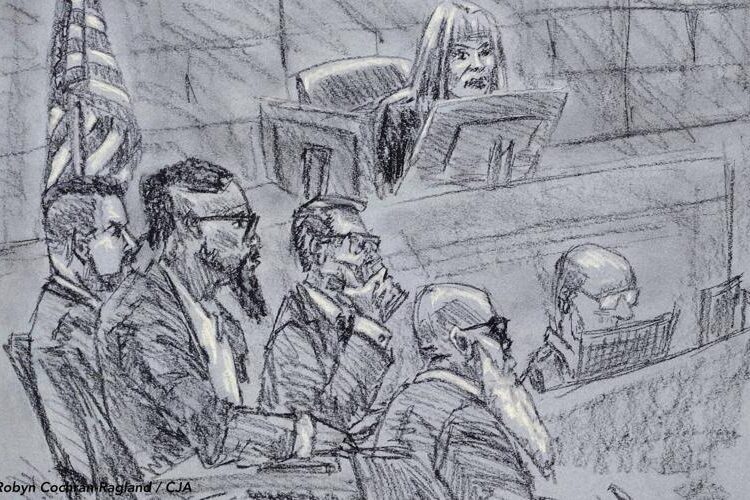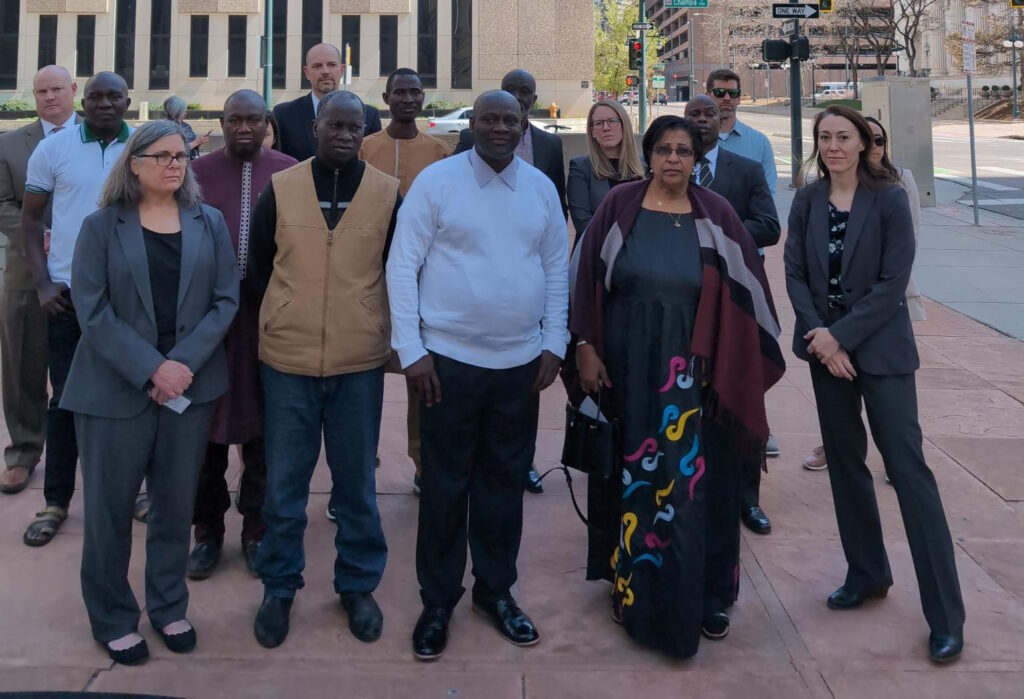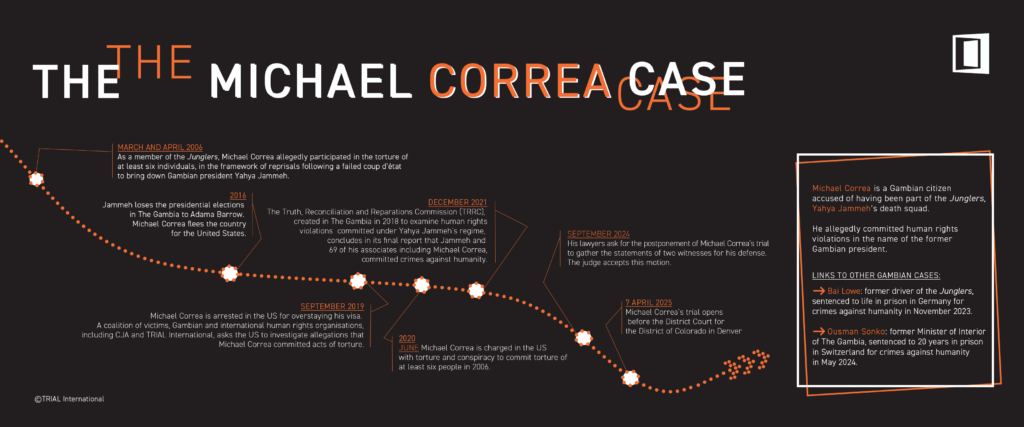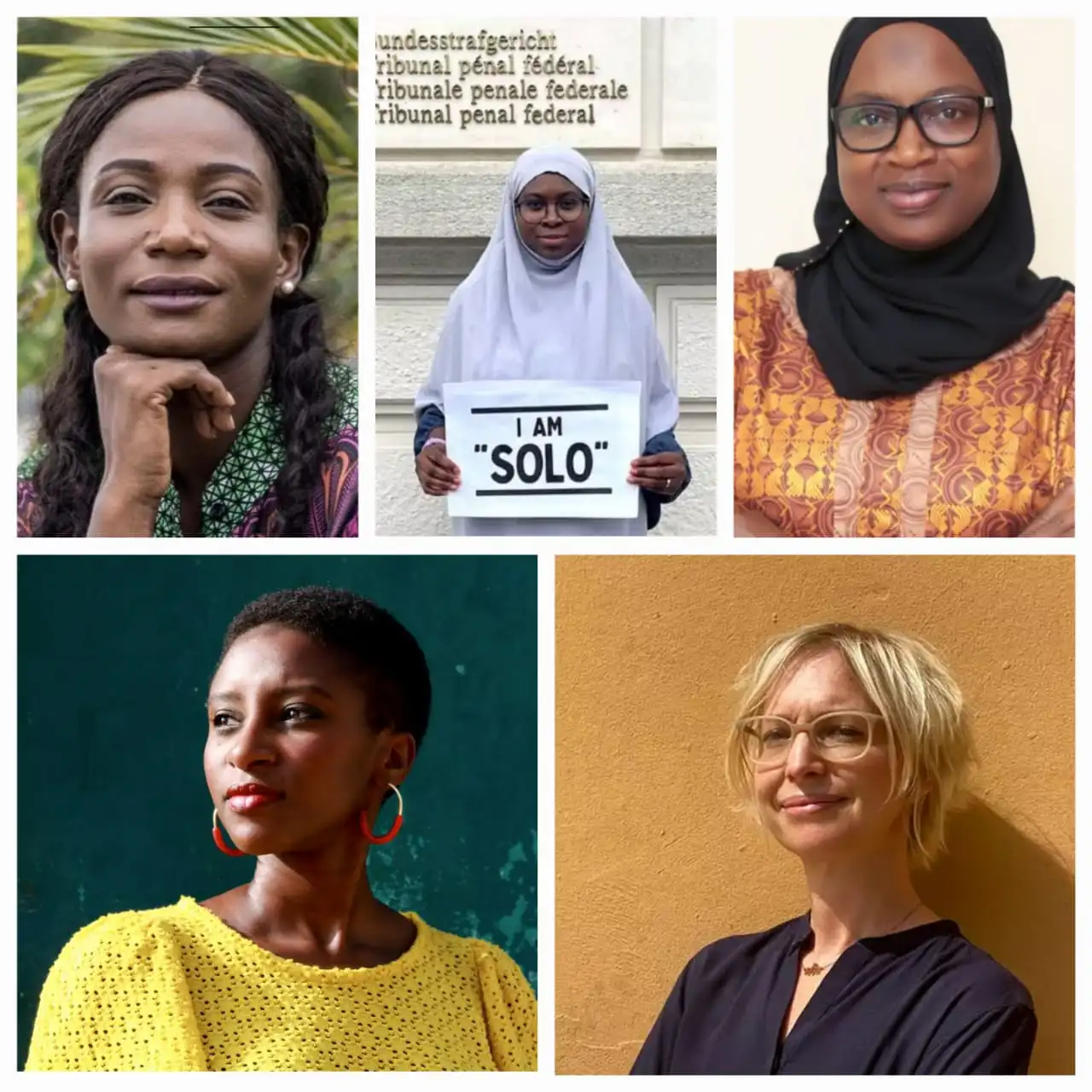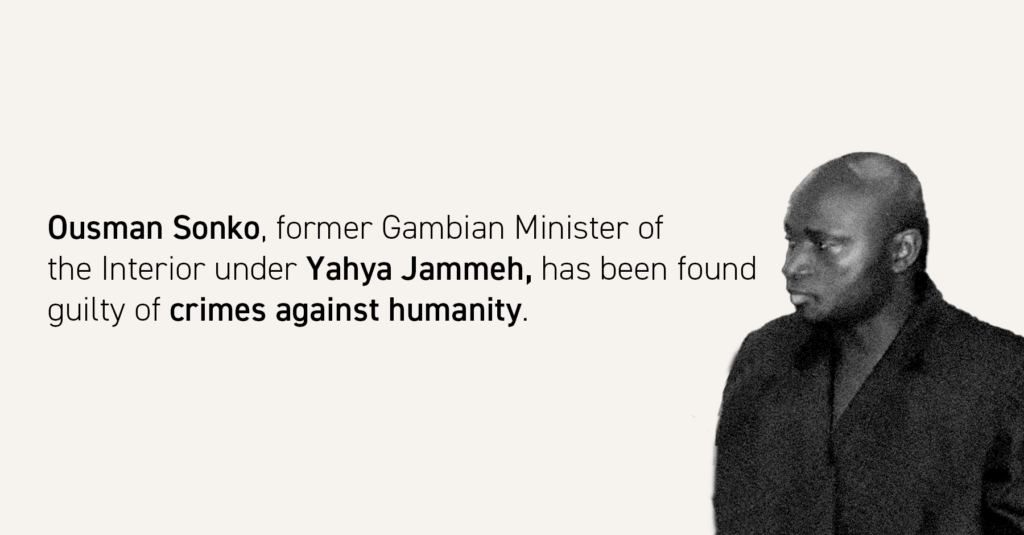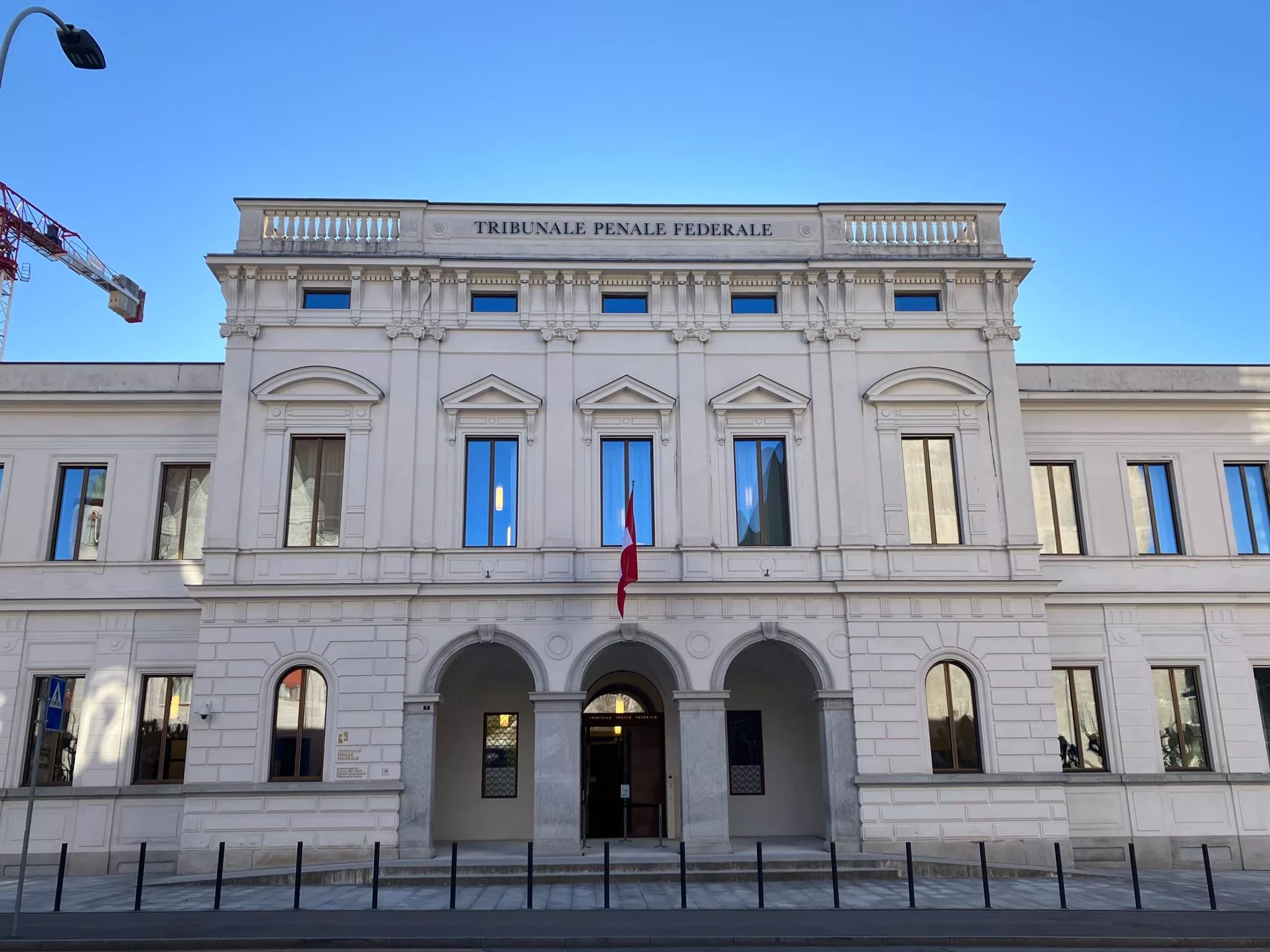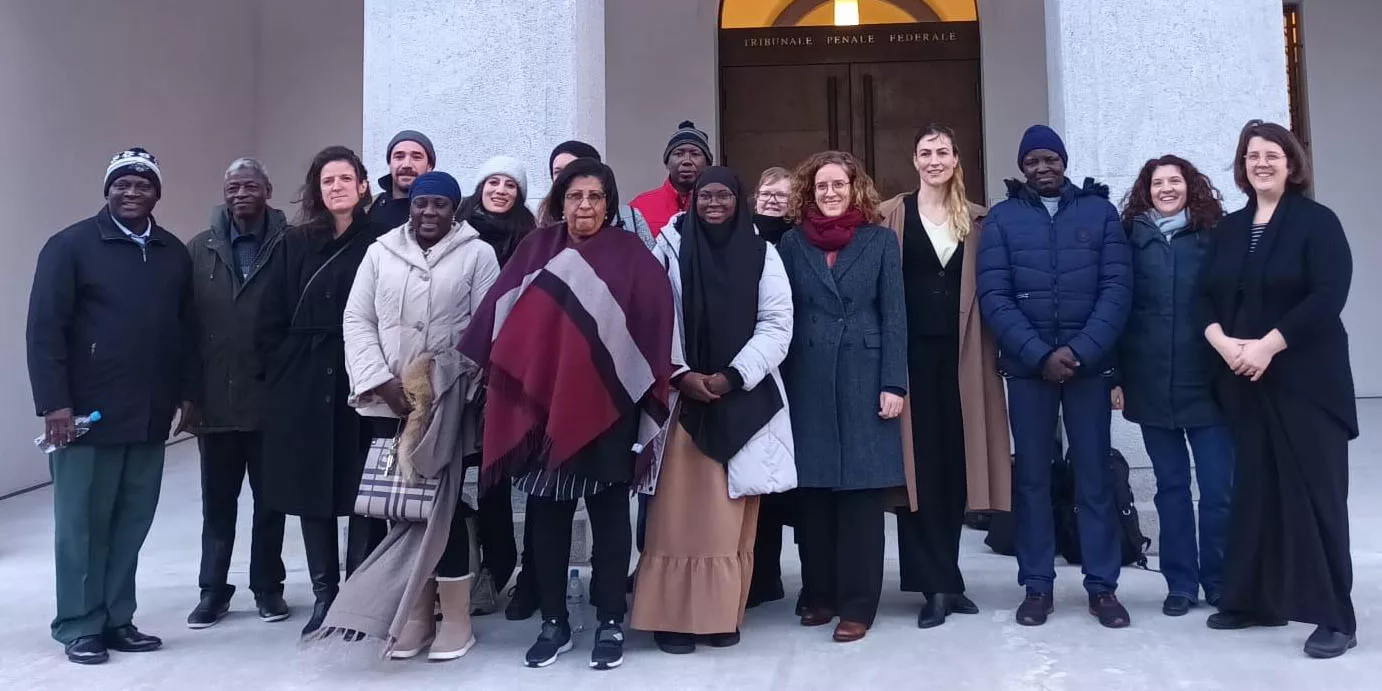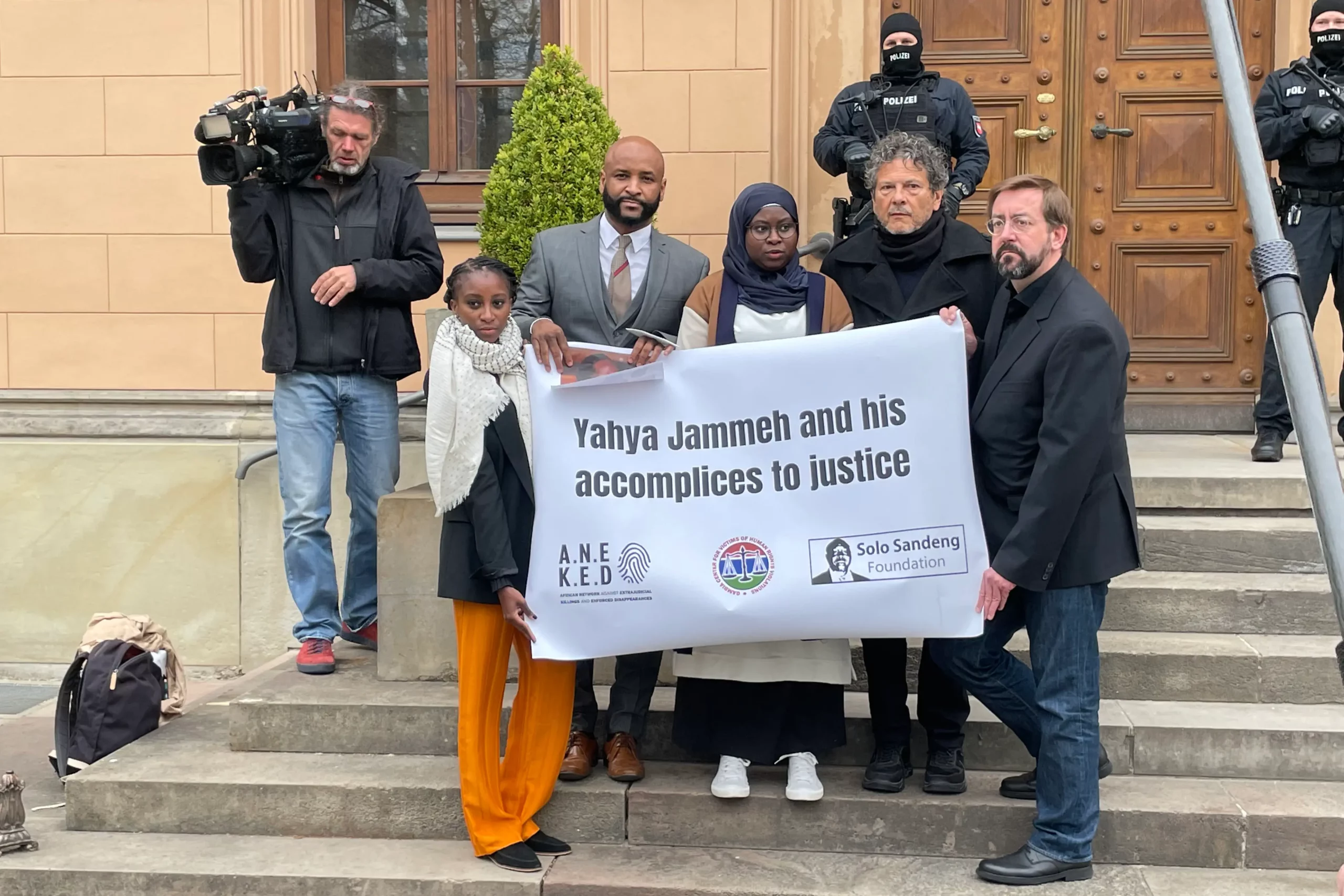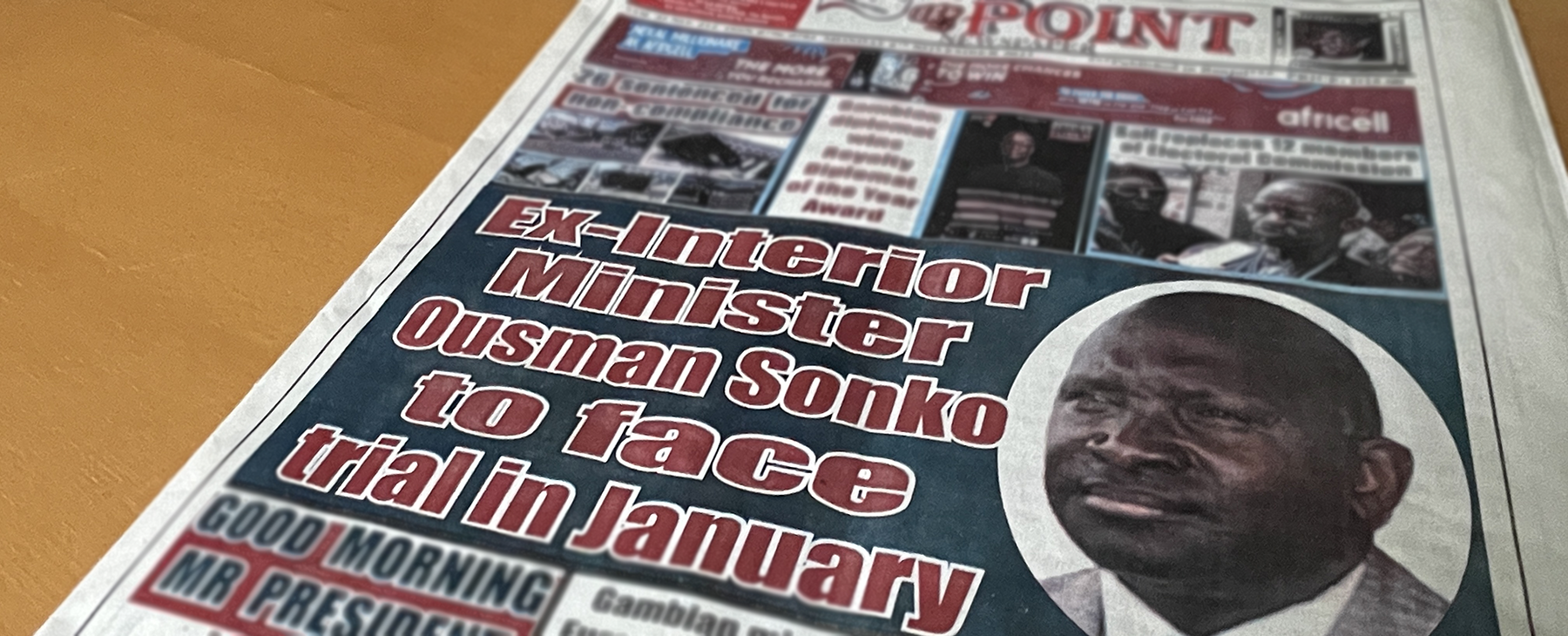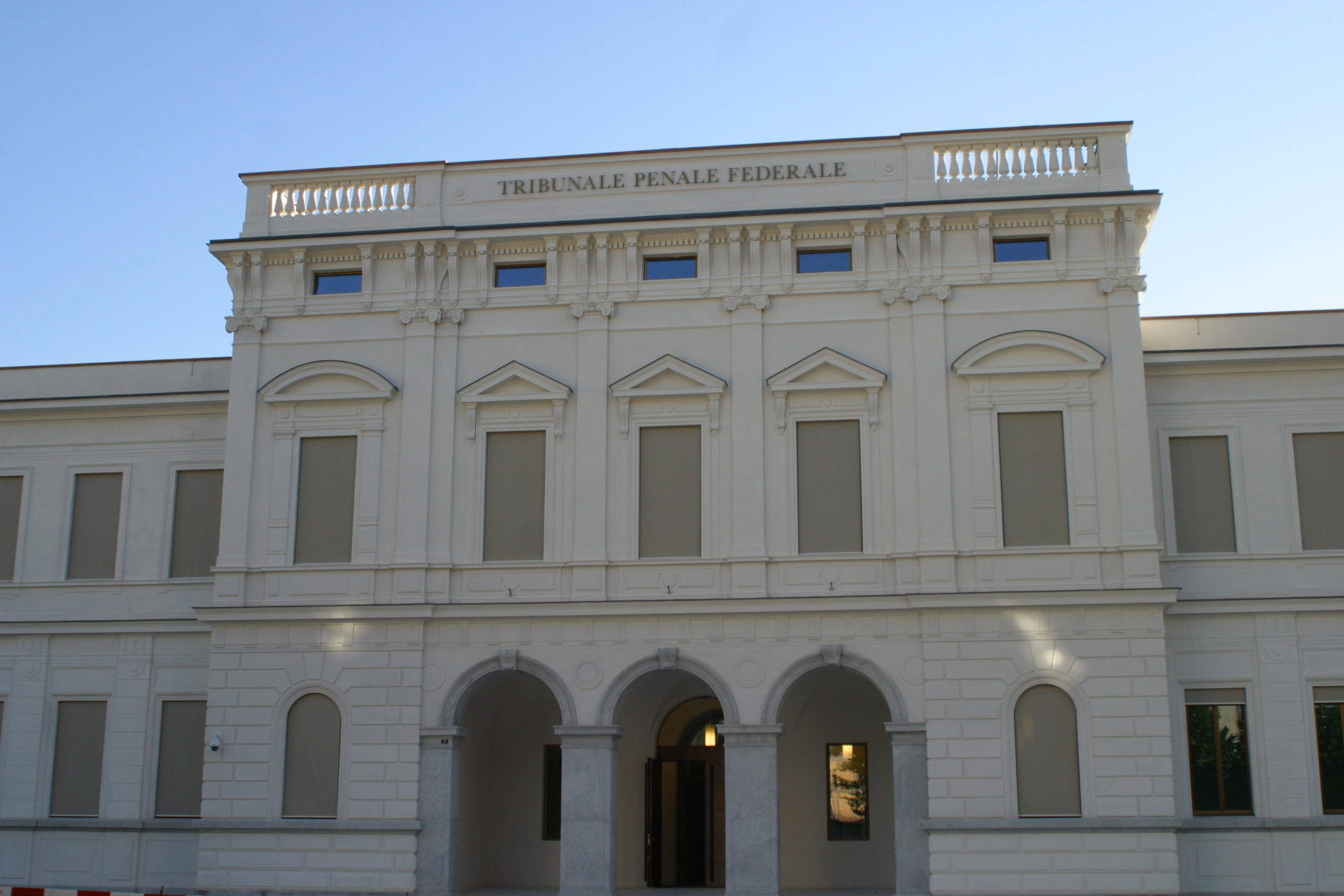-
Who is Bai L. and what are the charges against him?
Bai L. is a 48-year-old Gambian citizen who is alleged to have been a member of the “Junglers” death squad, a paramilitary unit also known as the “Patrol Team” created by the former Gambian President Yahya Jammeh. According to the indictment, “the aim of [the Junglers’] operations was to intimidate the Gambian people and suppress the opposition.” Bai L. is charged with five counts of crimes against humanity. German prosecutors accuse Bai L. of being involved in the attempted murder of Ousman Sillah, a lawyer, in 2003, as well as in the murder of Deyda Hydara, a journalist, in 2004, the attempted murder of Ida Jagne and Nian Sarang Jobe, who were with Hydara, and the murder former Gambian soldier Dawda Nyassi, in 2006.
Bai L. has been in pretrial detention since his arrest in March 2021 in Germany, where he had been living since leaving The Gambia 2012. This trial, which began on April 25, 2022 in the German city of Celle, is the first to tackle human rights violations committed in The Gambia during the Jammeh era on the basis of universal jurisdiction.
-
Why is Bai L. being tried in Germany?
Bai L.’s trial in Germany is possible because the country’s laws recognize universal jurisdiction over certain serious crimes under international law, allowing for the investigation and prosecution of these crimes no matter where they were committed, and regardless of the nationality of the suspects or victims. Because Bai L. is living in Germany, German authorities are under an obligation to prosecute the case.
Universal jurisdiction cases are increasingly important in international efforts to hold those responsible for atrocities accountable, to provide justice to victims who have nowhere else to turn, to help deter future crimes and to ensure that countries do not become safe havens for human rights abusers. A number of European countries have ongoing investigations and prosecutions related to grave abuses committed abroad in places such as the Democratic Republic of Congo, Iraq, Liberia, Syria, and Ukraine.
German authorities have been leaders in conducting prosecutions based on universal jurisdiction. In January 2022, a German court in Koblenz convicted a former Syrian intelligence officer for crimes against humanity and sentenced him to life in prison. In the 2023 edition of TRIAL International’s Universal Jurisdiction Annual Review, eight universal jurisdiction cases have been listed in Germany for the year 2022, seven of them relating to Syria, and the Bai L. case relating to The Gambia.
-
What was the human rights situation in The Gambia under Yahya Jammeh?
Yahya Jammeh’s 1994-2017 rule was marked by systematic oppression of real or perceived opponents. The government targeted, among others: journalists, human rights defenders, student leaders, religious leaders, political opposition members, judiciary officials, and lesbian, gay, bisexual, transgender and queer (LGBTQ) people. This resulted in serious human rights violations, including torture, extrajudicial killings, enforced disappearance, and sexual violence.
Many of these human rights violations were brought to light during the hearings of The Gambia’s landmark Truth, Reconciliation and Reparations Commission (TRRC), which was set up in 2018. A total of 393 witnesses, including victims and former government insiders, testified during over two years of public hearings.
Witnesses at the TRRC, including direct perpetrators, linked Jammeh to the killing and torture of political opponents, the murder of 59 West African migrants, and “witch hunts” in which hundreds of people were arbitrarily detained, among other crimes. They also alleged that Jammeh raped and sexually assaulted women and ran a sham HIV-treatment program.
-
Who were the victims of Bai L.’s alleged crimes?
Ousman Sillah was one of the lawyers of Baba Jobe, former leader of the parliament majority who had been close to Jammeh but was later jailed for alleged tax evasion. Jobe died in 2011 under controversial circumstances while in prison. Sillah survived a December 2003 attack on his life, purportedly carried out as retaliation for his aggressive defense of Jobe. Bai L. allegedly was driving the vehicle used by the Junglers during this operation.
Deyda Hydara was a renowned Gambian journalist, co-founder, and primary editor of The Point Newspaper, as well as an Agence France Presse (AFP) and Reporters Without Borders’ (RSF) correspondent in the country. He had a widely read column in The Point, “Good morning, Mr President,” on Gambian politics. According to RSF, Hydara was being spied on by Gambian intelligence services just before his death. Hydara was killed on December 16, 2004. Bai L. is accused of driving the killers to and from the scene and having used his car to cut off Hydara’s car.
Dawda Nyassi was a Gambian citizen who had gone to fight in Liberia’s civil war. When he returned to The Gambia, he was allegedly shot by members of the Junglers in 2006 because he was suspected of having plans to overthrow Jammeh. Here again, Bai L. allegedly drove the killers to the crime scene during this Junglers-led operation.
The TRRC found that Jammeh ordered the Junglers to murder Sillah, Hydara and Nyassi. Gambia’s TRRC also called for Bai L.’s prosecution in the murder of the 59 West African migrants in 2005. He is not charged for this crime in Germany, however, NGOs have called for German authorities to investigate this massacre as well. Martin Kyere, a key witness to this crime, testified in Celle (see below).
-
What evidence has been presented at the trial?
The prosecution submitted two long and publicly accessible interviews which Bai L. gave to Pa Nderry M’Bai, editor of Freedom Radio, a Gambian opposition station based in the United States in 2013, and to leading Gambian journalist and host of the Fatu Network, Fatou Camara in 2014. In those interviews given after Bai L. had left The Gambia and was living in Germany, he described in great detail the Hydara and Nyassi killings, as well as the Sillah shooting. He also talked in those conversations about his role as a driver in those acts as well as in the murder of the West African migrants, the execution of former intelligence chief Daba Marenah and four associates in April 2006, and the murder of Jammeh’s cousin Haruna Jammeh. According to Bai L., Jammeh was allegedly behind each of the Junglers’ operations. Considerable evidence was presented at the trial, including from the defense, related to the circumstances, the authenticity, and the truthfulness of those interviews, as well as to Bai L.’s motives for conducting the interviews. This evidence included thousands of chats and photos taken from Bai L.’s telephone and of conversations he had with others about the interviews and about his time in The Gambia.
Other witnesses included German investigators, a German expert on The Gambia’s history, a former Gambian Jungler who had given a prior statement that Bai L. was a Jungler (though at trial he chose to remain silent), Bai L.’s former trainer in the army who testified that Bai L. was a Jungler, the German asylum judge who interviewed Bai L. during which he described his role in the Hydara killing, acquaintances of Bai L. who placed him as a member of the Junglers, Ida Jagne and Nian Sarang Jobe who were both passengers in the car Deyda Hydara was driving when he was killed, and Pap Saine, co-founder with Deyda Hydara of The Point newspaper. Deyda Hydara’s son, Baba Hydara, who is also a journalist, as well as his younger brother Deyda Hydara Jr., Fatou Sillah, daughter of Ousman Sillah, and Omar Nyassi, son of Dawda Nyassi, testified as well. Additionally, a former driver at the State House provided an alleged alibi, explaining that on the night of Deyda Hydara’s assassination, he was transporting equipment with the accused to Kanilai. Much of the evidence centered on the Hydara case over the other two.
Transcripts and recordings of the TRRC proceedings which mentioned Bai L.’s alleged participation in the crimes were also entered into evidence. On the issue of whether Bai L. was a Jungler, Martin Kyere of Ghana, the sole known survivor of the massacre of the West African migrants, testified that he recognized Bai L. in a photo line-up organized by the German police as well as in court from interactions they had when Kyere was detained in 2005. In one instance, Kyere said, Bai L. pushed him during the migrants’ initial arrest and a second time he took Kyere to the pick-up truck he was driving, in which they were taken into the forest where all of Kyere’s companions were killed. Kyere admitted that he had seen photos of Bai L. on the internet and the defense argued that after 18 years, his identification of Bai L. could not be relied upon.
-
What has Bai L. said about the charges?
In October 2022, when Bai L. expressed himself for the first time since the beginning of his trial, he offered a statement read out by his lawyers in which he said that he left The Gambia in 2012 after soldiers came twice to his house to arrest him, and claimed that the information he shared on the murders during the 2013 and 2014 interviews were based on elements narrated to him beginning in 2006 by Junglers he knew, and that, although he had not been part of the Junglers, he was encouraged by journalist Pa Nderry M’Bai to pose as a former Jungler to “make the people in The Gambia believe the truth” about Jammeh’s crimes. Pa Nderry M’Bai who died in 2021 could not be heard in court in this regard. Bai L. said that by posing as a Jungler, he thought he would add credibility to the accounts given to him by others. “It did, finally, lead to the people in The Gambia knowing the truth about Jammeh,” he said in his statement, while denying his participation in the murders and attempted murder tried in court: “I did not participate in any of these acts.”
A former Gambian officer said that, in his own interview with journalist Pa Nderry M’Bai, he was also instructed by the journalist to pose as Jungler and as a direct eyewitness to the events described, in order to make them more credible to the Gambian public. Others contested the veracity of this officer’s account. Journalist Fatu Camara, who interviewed Bai L. in 2014, also testified that she could not imagine Pa Nderry M’Bai giving instructions of this nature to his interviewees; and that in her own interview, there were no signs pointing to the possibility that what the accused was sharing about their implication in these murders was untrue.
-
How have survivors and victims been involved in the proceedings?
Deyda Hydara’s son, Baba Hydara is a joint plaintiff in the trial against Bai L., alongside Dawda Nyassi’s sons Omar and Modou Nyassi, as well as Ida Jagne, Deyda Hydara’s former colleague who was present in the car Hydara was driving when he was shot, and incurred injuries during the attack.
Under German law, a victim of certain crimes charged in the trial or a family member of a victim who was killed can join a criminal proceeding as a joint plaintiff, thereby becoming a formal party to the proceeding.
The joint plaintiffs and their lawyers were present at the trial and were able to enjoy the same procedural rights as the prosecution and the defense such as questioning witnesses and experts, filing and reacting to procedural motions, and requesting evidence to be introduced into the trial. Baba Hydara and Omar Nyassi also gave closing statements.
-
What sentence does Bai L. face if he is convicted?
If convicted by the Higher Regional Court of Celle, Bai L. could face up to life in prison. Judgments by Higher Regional Courts in Germany can be appealed at the German Federal Court of Justice.
-
Will Yahya Jammeh or other high-level officials be prosecuted for serious crimes committed in The Gambia?
Jammeh is currently in Equatorial Guinea, where he sought exile in January 2017 after losing the December 2016 presidential election to Adama Barrow. Since his fall, The Gambia has moved forward with only two prosecutions for Jammeh-era crimes. On July 14, 2021, Yankuba Touray, former minister of local government in the early days of Jammeh’s military junta, was found guilty of the 1995 murder of former finance minister Ousman Koro Ceesay. On July 13, 2022, after a five-year trial, a Gambian court convicted Yankuba Badjie, the former Director-General of the National Intelligence Agency (NIA), and five others for the 2015 murder of opposition leader Solo Sandeng who died in custody after leading a peaceful march for political reform.
On December 24, 2021, the final report of Gambia’s TRRC was published, concluding that Jammeh and 69 of his associates committed crimes against humanity and calling for itheir prosecution. On May 25, 2022, the Gambian government responded with a White Paper accepting the TRRC’s recommendation that those responsible be prosecuted, though without presenting a plan for how to do so, despite the fact that such a TRRC recommendation had been predictable for many years.
Indeed, since 2019, the Gambia Bar Association had independently led a series of multi-stakeholder consultations on how any trials recommended by the TRRC should be conducted. These discussions resulted in a consensus in favor of a “hybrid” court, anchored on a treaty with Economic Community of West African States (ECOWAS), with both Gambian and international staff, with a framework tailored to the prosecution of the worst Jammeh-era crimes that would ultimately build the capacity of the national justice system.
The hybrid court proposal was also backed by the United Nations Working Group on Enforced Disappearances. Finally, at an international stakeholders conference on May 12, 2023, the government presented a long-awaited detailed implementation plan for the TRRC recommendations, calling for the creation of a Special Prosecutors’ Office to complete the investigations initiated by the TRRC and to prepare case-ready dossiers, followed by a Gambia-ECOWAS hybrid tribunal to carry out prosecutions of the most serious offenses.
The Gambia and ECOWAS have created a joint technical committee to develop the modalities for the hybrid court. Given how long victims and Gambian society have now waited for accountability, and how long it took the government to propose a concrete implementation plan, the government and ECOWAS should move quickly to establish the hybrid court so that it can commence work.
-
Could Bai L. be tried in The Gambia as well?
When The Gambia begins to prosecute those designated by the TRRC, it could request Bai L.’s extradition from Germany to stand trial. The principle of double jeopardy (ne bis in idem) enshrined in international law and the Gambian constitution would prevent The Gambia from prosecuting him for any of the acts included in the indictment in the current trial, however.
-
Is anyone else being prosecuted under universal jurisdiction for crimes committed in The Gambia during the Jammeh era?
Bai L. is not the first person to have been indicted outside of The Gambia for crimes committed in Gambia under Jammeh. Another alleged Jungler, Michael Correa, 44, was indicted in the United States in June 2020 on charges of torturing individuals suspected of having plotted a coup in The Gambia in 2006. He is currently awaiting trial, which is scheduled to start on September 16, 2024 before the US District Court of Colorado in Denver.
On April 17, 2023, Swiss prosecutors indicted Ousman Sonko, former Interior Minister of The Gambia, on charges of crimes against humanity, six years after his first arrest in Bern. Sonko is the highest-ranking individual to be prosecuted in Europe under the principle of universal jurisdiction. He is accused of the killing of a perceived political opponent, acts of sexual violence, the murder of a politician, as well as of having been involved in deprivation of liberty and acts of torture– including against Solo Sandeng, which led to his death. His trial before the Swiss Federal Criminal Court in the city of Bellinzona will open on January 8, 2024.
-
How accessible has the trial been to the public and journalists and affected communities in Gambia?
Distance, language, and the lack of an outreach program have made it difficult for Gambians to follow the trial. The trial is taking place on a different continent, in a foreign language, without audio or video coverage to those not in the courtroom, with no transcripts and little press coverage.
Due to Covid-19 restrictions, there has been a limited number of seats available for the public in the courtroom. According to the March 30, 2022 news release of the Higher Regional Court of Celle, 15 seats were available for accredited journalists, and one was reserved for Gambian journalists. The court has been welcoming towards the press, including Gambian journalists, two of whom attended the opening and another two who travelled to Celle in June 2022 to document the trial. The trial has not received sustained attention in the international press, with some exceptions such as three articles on the website JusticeInfo.net.
The trial has been conducted in German with an interpreter for the defendant who alternated between Wolof and English. Unlike the above-mentioned Koblenz trial, where the interpreter’s feed was only available to accredited journalists, at Celle, the interpreter’s feed has been available upon request to all those present in the courtroom.
The verdict will first only be available in German, and no official transcript of trial proceedings in any language will be provided once the trial concludes. The Higher Regional Court in Celle published one news release about the opening of the trial in English. Legislation is pending in Germany that would foresee the translation of important judgments in international crimes cases to English. Generally, it takes several months until a written judgment is rendered, following the oral one. A translation to English by the German Ministry of Justice would take additional time.
To be meaningful, justice should not only be done, but be seen to be done. Research by Human Rights Watch, the European Center for Constitutional and Human Rights (ECCHR) and others has shown that the impact of accountability efforts on affected communities strongly correlates to outreach efforts. As Germany is acting on behalf of the international community through this trial, information should be more accessible to those most affected by the crimes. The court should consider ways to address this, for instance by making the verdict accessible in the relevant national languages and by facilitating the work of media representatives that are part of and report for the affected communities.
To ensure some record of the trial, TRIAL International and the International Commission of Jurists organized a trial monitoring program with a team from Georg-August-University of Göttingen for the entire duration of the trial. The students attended each hearing and took detailed notes in English. These notes were shared with Gambian civil society groups such as African Network against Extra-judicial Killings and Enforced Disappearances (ANEKED) and the Solo Sandeng Foundation, which could then use them to inform their constituents about the proceedings. The Point newspaper in Gambia and Journalists for Justice published articles based on the students’ reporting as well.
This question-and-answer document has been prepared by ANEKED, ECCHR, the Gambian Center for Victims of Human Rights Violations, Human Rights Watch, the International Commission of Jurists, Reporters Without Borders, the Rose Lokissim Association, the Solo Sandeng Foundation and TRIAL International.
